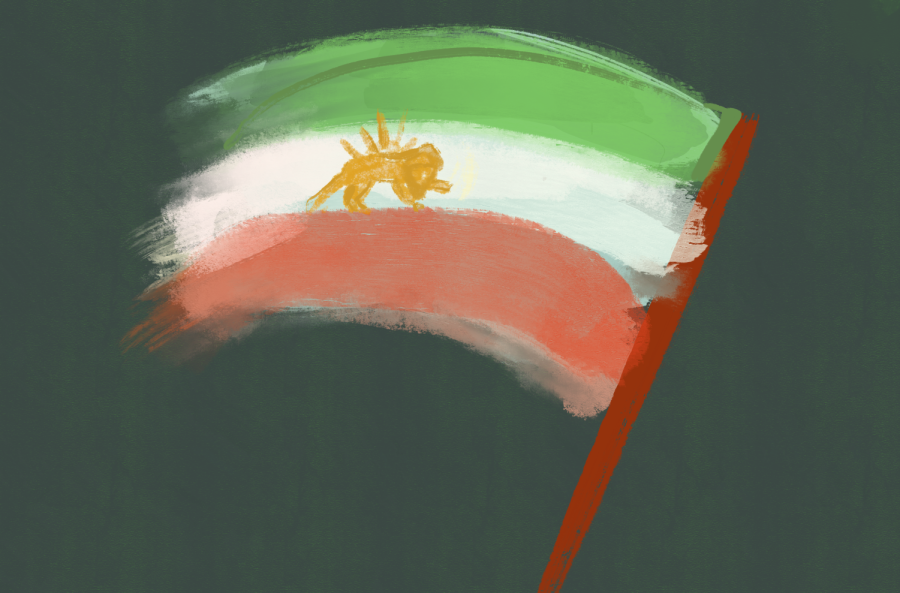Iran Protests Spark International Conversation
Protests have erupted nationwide after Mahsa Amini, an Iranian woman arrested by the country’s morality police, collapsed in custody and later died Sept. 16. Amini’s father and brother have both spoken out with claims that Amini was beaten in the police van before being transported to Vozara Detention Center, though Iranian authorities announced the cause of death was a heart attack.
As the incident garners global attention, some have publicly contradicted Iranian authorities. Dr. Houssein Karampour, a highly ranked physician in the Hormozgan Province of Iran, recently wrote a letter to the President of the Iranian Medical Council stating that Amini’s symptoms aligned with head injury rather than a heart attack. “It is consistent with injuries associated with a head injury and bleeding,” Karampour’s letter read.
Former Islamic Revolutionary Guard Corps Commander Mohammad Bagher Bakitar, accused the Iranian government of conducting a cover-up and police officials of acting with a lack of responsibility.
Protests regarding Iran’s modesty laws followed Amini’s death, both in Iran and internationally. Demonstrations in Bellevue, Wash. and Downtown Seattle have prompted conversations about bodily autonomy and how it should be recognized as a global issue; not an issue that is isolated in the Middle East or Iran specifically.
Sital Kalantry, an associate professor of law at Seattle University, specializes in feminist theory and international law. Kalantry drew focus to the international threat to women’s rights. She pointed to religious headwear restrictions and bans in Germany and France, and how laws pertaining to what women wear and choose to do with their bodies suppress a woman’s freedom and work to diminish women’s individuality.
“In America, we have women facing enforced pregnancies under near-total bans, and we have women in Iran dealing with enforced hijabs. Regardless of what women do with their bodies it is being enforced and that is a form of oppression,” Kalantry said. “Women should be able to voluntarily wear what they want without fear of prosecution from the government.”
Amongst all the protests that occurred, there have been lots of questions arising about how government authority had escalated to such an extreme level and if things have always been that way. Onur Bakiner, an associate professor of political science at Seattle U, researches and educates on human rights-related issues in the Middle East. Bakiner shared the history of the laws and customs on women appearing ‘modest’ and in a conservative nature, beginning in the early days of the Iranian Revolution in 1979.
“The specific prohibition requires women to cover their hair and wear modest clothing in public. This prohibition was going to be enforced in the early days of the Iranian Revolution, but women’s mobilization against it delayed it. It was introduced for public-sector employees in 1980, and all women in 1983. It’s been in place ever since– but different governments choose the extent to which they enforce it,” Bakiner said.
Professor Bakiner recognizes enforced head coverings as a violation of human rights, but the Iranian Constitution may not.
“The constitution guarantees equality under the law for women and men. Also, Article 21 promises to ensure women’s rights in all respects ‘in conformity with Islamic criteria.’ Yet, the content of that article makes it clear that women are seen primarily as mothers and caregivers. Thus, bodily autonomy is not recognized as a fundamental right,” Bakiner said.
Around the world, protests are being held to honor Amini, with native Iranian women speaking out in various ways entailing the struggles of their harsh realities and demanding change.
Associate Professor of History Nova Robinson, who specializes in Middle Eastern History and International Governance, described how political unrest can inspire change when citizens demand it of the government.
“When the brutality of a government hits a tipping point, change may be granted, but not without a struggle,” Robinson said.
The protests resulting from Amini’s death have generated awareness about gender inequality around the world, sparking vital conversations about women’s rights.











